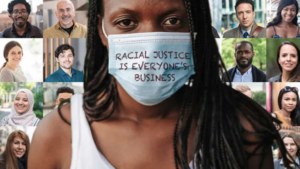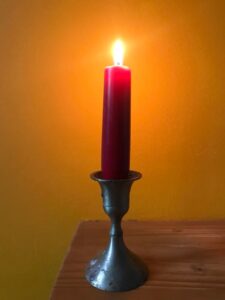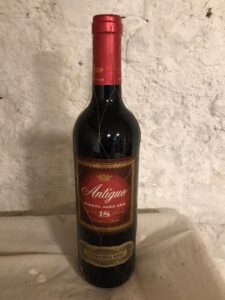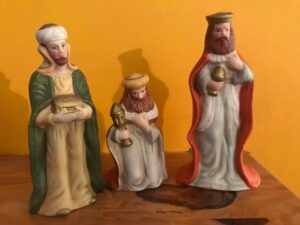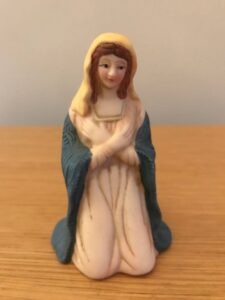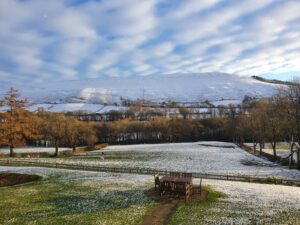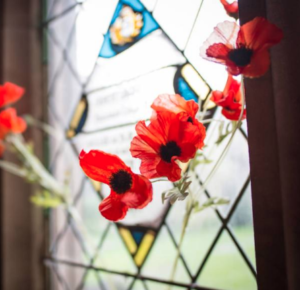
To watch this service on YouTube, please click here:
The Readings
Acts 10.34-43
Then Peter began to speak to them: ‘I truly understand that God shows no partiality, but in every nation anyone who fears him and does what is right is acceptable to him. You know the message he sent to the people of Israel, preaching peace by Jesus Christ—he is Lord of all. That message spread throughout Judea, beginning in Galilee after the baptism that John announced: how God anointed Jesus of Nazareth with the Holy Spirit and with power; how he went about doing good and healing all who were oppressed by the devil, for God was with him. We are witnesses to all that he did both in Judea and in Jerusalem. They put him to death by hanging him on a tree; but God raised him on the third day and allowed him to appear, not to all the people but to us who were chosen by God as witnesses, and who ate and drank with him after he rose from the dead. He commanded us to preach to the people and to testify that he is the one ordained by God as judge of the living and the dead. All the prophets testify about him that everyone who believes in him receives forgiveness of sins through his name.’
The Sermon
By Kath Boyd, Reader
Good morning and may I begin by wishing you all a very Happy Easter. I wanted to say this straight away because I genuinely mean it and I don’t want to give any wrong impressions about the value I place on this celebration. I know that today is absolutely very special and for many Christians it is the most joyous day of the whole Christian calendar. I would love to be one of them but without wishing to rain on anyone’s parade, I have to be honest and say that I find feeling joyful rather difficult after all we have contemplated and followed and re-enacted, especially through Holy Week. For this reason I found our reading from Luke’s Gospel particularly meaningful. It wasn’t quite the story I was expecting; (I thought it would be the one where Mary Magdalene mistakes Jesus for the gardener), but the more I have sat with this one from Luke, the more it feels right for our present times. It conveys a real feeling of uncertainty and perhaps anxiety that the close followers of Jesus must have been experiencing, and at the end of this particular passage, nothing is resolved. We have the benefit of knowing what happens next but those involved didn’t. They were traumatised, they still didn’t know what was going on and in their minds they had just lost the one person who could make sense of it all. Even though Jesus had told them that he would rise again, could they really comprehend that and believe it, however much they wanted to.
As I said, I think this passage conveys their situation very well and I’d like us to look at it in a little more depth but to do this I would like us to step back to the re-enactment of the Passion of Christ that we shared in last Sunday. If we really allow ourselves to take it in, it’s a very, very powerful and heart-breaking portrayal of a ghastly event. At the very end of it we are told that all Jesus’ “acquaintances, including the women who had followed him from Galilee stood at a distance, watching”. We are also told that when Joseph of Arimathea took Jesus’ body from the cross and laid it in a new tomb, the women followed him “they saw the tomb and how his body was laid. Then they returned (presumably to where they were staying), and prepared spices and ointments.” The final service they could perform for their beloved Lord was to prepare his body lovingly for a dignified burial; love and dignity that he had been denied in his death.
The day after the Sabbath the women returned to the tomb to do this service and no doubt they thought they knew what to expect. Perhaps they were a little surprised, and possibly relieved, that the stone covering the entrance to the tomb had already been rolled away but when they went inside “they did not find the body”. Can you imagine how they must have felt; “what’s happened? Who’s taken him and what have they done with him?” I think describing these women as “perplexed” is probably an understatement. Then suddenly two men, who they don’t know, are standing there in “dazzling clothes” asking them “Why do you look for the living among the dead?” and telling them that Jesus has risen as he said he would. They remind the women of all that Jesus had foretold and when they recall this they leave the tomb and go to tell the eleven disciples and all the others what has just happened. Now quite specifically we are told who some of these women are, Mary Magdalene, Joanna and Mary the mother of James so we know they have been established followers of Jesus for a long time. Imagine then how they must have felt when what they recount of the events at the tomb is dismissed as “an idle tale” and they are not believed. To our modern sensibilities it’s insulting and disrespectful and hurtful but perhaps they were used to it. Even so, I’m sure it still upset them. However, Peter decides to go and take a look for himself. He “ran to the tomb; stooping and looking in, he saw the linen cloths by themselves; then he went home, amazed at what had happened.”
I can’t help wondering why he didn’t go back and tell the others so that they wouldn’t have been so dismissive of what the women had said but to be fair to him, maybe he was struggling to take it all in himself. To fully grasp the uncertainty that all the people in our passage were experiencing, we have to think ourselves into their situation, see events through their eyes and imagine what they were thinking and feeling. At that point they didn’t know what had happened.
But we do know that Jesus rose again, as he had foretold. Everything wasn’t magically alright and it wasn’t going to be but after they had seen him for themselves, the disciples knew they were not alone; he was and always would be with them.
Everything is far from alright in our world today but as people of faith we know that we are not alone in our struggles and also in our joys; it’s important to recognise and acknowledge both. Jesus is with each and every one of us if we allow him to be. That to me is the power and the beauty of the Easter message that can enable us to find joy in even the most difficult of times. So I really can wish you all a very Happy Easter.
The Prayers
Prepared by Oli Giles
Lord, we pray for our world.
We pray
For those trapped in zones of conflict and corruption.
For those suffering the forest fires, rising sea levels and unstable weather systems as a result of climate change.
For those who are not free to express their opinion and identity openly without fear.
For those who lack access to clean water, secure food stores and basic medical services.
Jesus, Lord of life,
in your mercy, hear us.
Lord we pray for the gaping inequality in our society.
We pray
for those who have no home.
For those who must rely on foodbanks.
For those who have job insecurity.
For those who can’t afford their prescriptions.
Jesus, Lord of life,
in your mercy, hear us.
Lord we pray for our families and friends
We pray
For those in abusive relationships
For those experiencing feelings of division and separation
For our loved ones who are terminally ill
For those close to us who are bereaved and grieving
Jesus, Lord of life,
in your mercy, hear us.
Lord we pray for ourselves
We pray
For when we struggle to find meaning
For when we feel lost and alone
For when we suffer crises of identity
For when we feel overwhelmed and exhausted
For when we have hit rock bottom.
Jesus, Lord of life,
in your mercy, hear us.
Lord,
You’ve shared these experiences and know these injustices
You’ve inhabited the darkest place.
Yet, through the unstoppable light of your resurrection you show us that death is not the end.
Wounds can be healed
Division can be reconciled
Our broken bodies can perform transformative acts
Inequity can be challenged
And that across all space and time,
Love wins.
During these uncertain times, help us to share and inspire in others the unstoppable joy of your resurrection.
Jesus, Lord of life,
in your mercy, hear us,
accept our prayers, and be with us always.
Amen.




